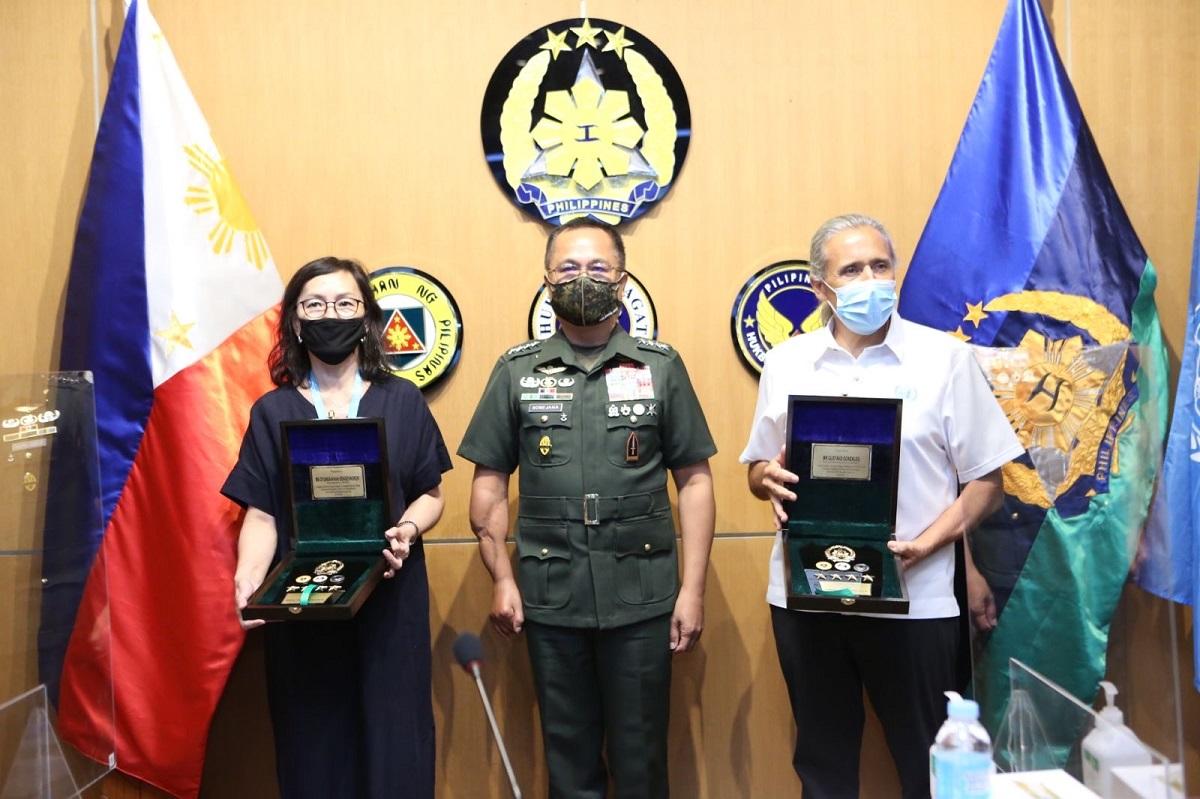AFP, UN ink plan for protection of children in conflict

The Armed Force of the Philippines (AFP) and the United Nations on Wednesday signed a strategic plan to protect children affected by conflict in the country, the AFP said on Thursday.
In a statement, the AFP said the plan includes their commitments, benchmarks, and activities with their obligations under international human rights law and international humanitarian law.
The signing of the "Strategic Plan to Prevent and Respond to Grave Child Rights Violations in Situations of Armed Conflict" was held at Camp Aguinaldo.
AFP chief General Cirilito Sobejana said the military will ensure that professionalism, discipline and respect are observed in their operations.
“We shall guarantee that all our personnel are properly educated and trained, to raise their awareness, and for a deeper sense of respect and regard to the promotion and protection of Human Rights in particular, to children’s rights, and adherence to International Humanitarian Law,” he said.
The AFP said it will prevent, end, and respond to grave child rights violations and other prohibited acts under the UN Security Resolution 1612 and Republic Act 11188.
It also said it will push for accountability for grave violations against children and oversight of state mechanisms for prevention and response.
The activities and commitments in the strategic plan will be implemented for two years and can be extended based on a joint review by the concerned organizations. It will take effect upon approval of Defense Secretary Delfin Lorenzana, the AFP said.
Aside from Sobejana, UN resident coordinator and UN Country Task Force on Monitoring and Reporting (UN-CTFMR) co-chair Gustavo Gonzales and UNICEF Representative to the Philippines Oyunsaikhan Dendevnorov also signed the plan.
The UN, through the Philippine CTFMR, shall facilitate regular consultations with the AFP through its AFP Center for Law of Armed Conflict (AFPCLOAC).
Dendevnorov pointed out that grave child rights can cause lasting damage to the children and communities. “They risk feeding the very same grievances and frustrations that lead to extremism, creating a vicious cycle of tension and violence.”
Gonzales said the United Nations Country Task Force will continue to work closely with the AFP “in our pursuit of development that leaves no one behind and respects the rights of all in the Philippines.”
Sobejana said the AFP recognized the importance of such partnerships that can provide a better perspective on the role of the AFP in the promotion of dignity and respect for human life.
“We fervently hope that this partnership will continue to grow and remain stronger in the years to come. Rest assured that the AFP will endeavor to always promote what is in the best interests of our people and our country,” he said. —Joviland Rita/KBK, GMA News




